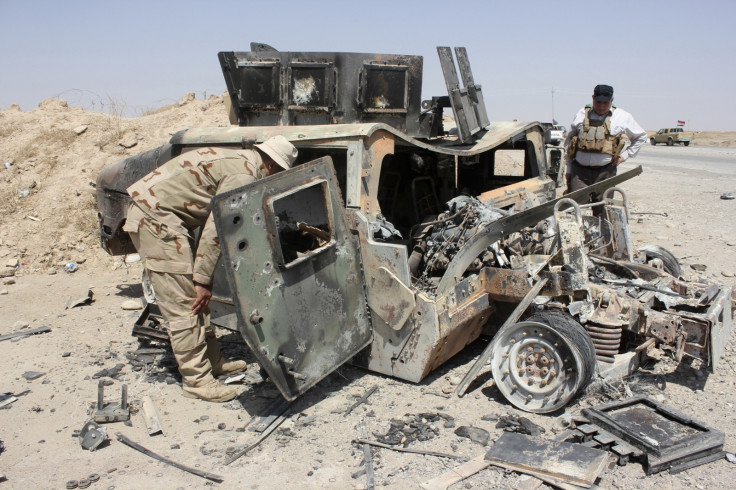US Army lost track of $1bn of arms in Middle East - sparking fears some could be in Isis hands
Tens of thousands of assault rifles and hundreds of mortar rounds are missing.

The US Army lost track of more than $1bn worth of weapons and military equipment shipped to the Middle East, according to Amnesty International, and some could have ended up in the hands of terrorist groups like Islamic State (IS).
The haul includes tens of thousands of assault rifles, hundreds of mortar rounds and hundreds of Humvee armoured vehicles.
The US government shipped the arms to Iraq and Kuwait to aid in the fight against IS and they were destined for use by the central Iraqi Army and Kurdish Peshmerga forces.
But an official audit of the transfers published in September 2016, and obtained by Amnesty under freedom of information laws, reveals the US department of defense (DoD) "did not have accurate, up-to-date records on the quantity and location" of a vast amount of the arms.
Amnesty International said the record keeping was so poor, those responsible for tracking the equipment "were unable to ascertain its location or status".
"This audit provides a worrying insight into the US Army's flawed – and potentially dangerous – system for controlling millions of dollars' worth of arms transfers to a hugely volatile region," said Patrick Wilcken, Amnesty International's arms control and human rights researcher.
"It makes for especially sobering reading given the long history of leakage of US arms to multiple armed groups committing atrocities in Iraq, including the armed group calling itself the Islamic State."
Poor accounting is especially troublesome in countries like Iraq, where corruption is rampant.
Amnesty said it makes it easier for equipment to go missing and end up in the hands of groups accused of human rights violations and hostile to the US, like IS or Iranian-backed Shia paramilitary forces.
In 2015, the Iraq Train and Equip Fund – a key component of US-Iraqi co-operation – gave $1.6bn of equipment to help Iraqi forces fight IS.
The subsequent audit found there was no centralised system to track the military wares sent over, resulting in fragmentary record-keeping with information logged on multiple spreadsheets.
Some records amounted to simple hand-written receipts.
Amnesty said a previous audit of arms transfers in 2015 uncovered even laxer stockpiling monitoring procedures, especially by Iraqi forces.
In some cases the Iraqi army was unaware of what was stored in its own warehouses, while other military equipment – which had never been opened or inventoried – was stored out in the open in shipping containers, Amnesty said.
Wilcken added: "The need for post-delivery checks is vital. Any fragilities along the transfer chain greatly increase the risks of weapons going astray in a region where armed groups have wrought havoc and caused immense human suffering."
In response to the audit, the US military has pledged to tighten up its systems for tracking and monitoring future transfers to Iraq.
But Amnesty says the DoD made almost identical commitments in response to a report for Congress as long ago as 2007 that raised similar concerns.
"After all this time and all these warnings, the same problems keep re-occurring," Wilcken said. "This should be an urgent wake-up call for the US, and all countries supplying arms to Iraq, to urgently shore up checks and controls.
"Sending millions of dollars' worth of arms into a black hole and hoping for the best is not a viable counter-terrorism strategy; it is just reckless.
"Any state selling arms to Iraq must show that there are strict measures in place to make sure the weapons will not be used to violate rights. Without these safeguards, no transfer should take place."
© Copyright IBTimes 2025. All rights reserved.






















